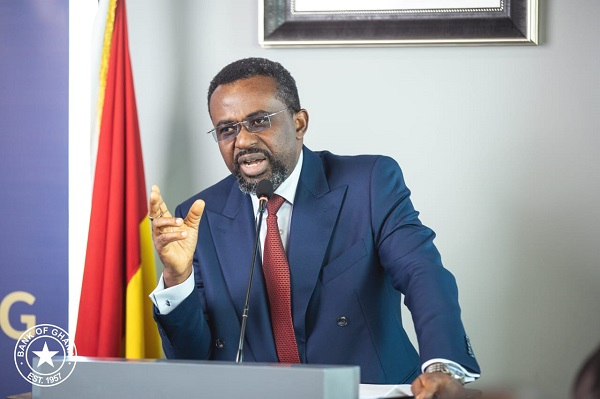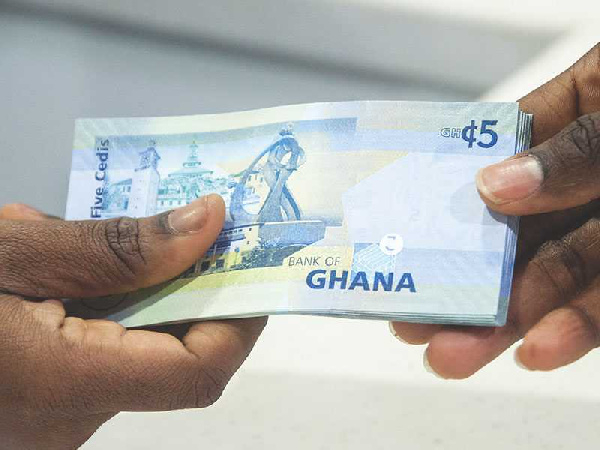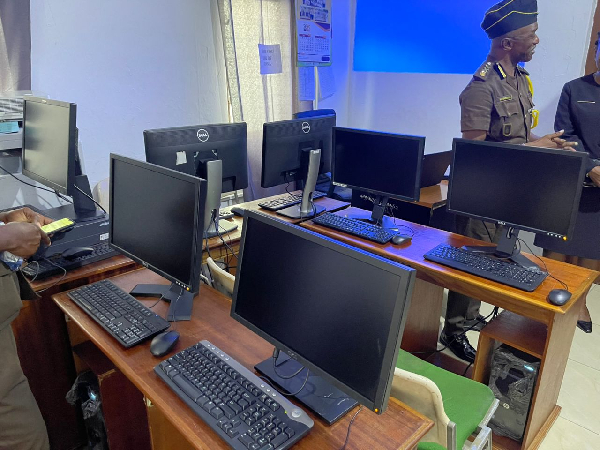Ghana Cedi Stability and Economic Impact

The Ghanaian cedi is demonstrating significant strength and is projected to sustain its gains into the second quarter, buoyed by robust foreign exchange support and improving market confidence. According to Databank Research, this optimistic forecast is underpinned by the Bank of Ghana’s continuous market interventions, a volatile US dollar, and anticipated inflows from the International Monetary Fund (IMF). In recent weeks, the cedi has recorded an aggressive appreciation against major foreign currencies, trading at approximately GH¢12.90 to one US dollar in the retail market. More recent data from Bloomberg on May 27, 2025, indicated the cedi trading at GH¢10.35 to the US dollar, highlighting its upward trajectory.
Several factors are contributing to this positive momentum. The Bank of Ghana's active engagement in the forex market through targeted interventions is considered central to anchoring expectations and ensuring adequate liquidity, thereby moderating volatility and reinforcing confidence in the cedi. Furthermore, enhanced macroeconomic stability and increasing investor confidence in Ghana’s policy direction have helped limit speculative positioning against the currency. The establishment of the Ghana Gold Board and tighter macroeconomic controls are also cited by economic experts as key contributors. External factors also play a role; rising concerns over the US economic outlook, compounded by renewed trade tensions and fiscal policy uncertainty, are reportedly dampening investor appetite for dollar-denominated assets. This shift is expected to create favourable tailwinds for Sub-Saharan African currencies, including the cedi, as relative demand improves and external pressures ease.
A significant expected boost to Ghana's foreign exchange reserves comes from the International Monetary Fund. Following a recent staff-level agreement on the fourth review of Ghana’s US$3.0 billion Extended Credit Facility (ECF), an IMF Board approval is anticipated, which would secure a US$370 million tranche disbursement. Databank Research expects this inflow to augment existing FX buffers and support supply-side intervention, cushioning the cedi from potential external shocks.
One of the most immediate and welcome impacts of the cedi's stability is the potential for significantly lower fuel prices. Dr. Riverson Oppong, Chief Executive Officer of the Association of Oil Marketing Companies (AOMCs), projected that petrol could drop to as low as GH¢12 per litre by the next pricing window, contingent on the cedi maintaining its stability. He noted that the industry had already observed an average decrease of six to ten percent in fuel prices between May 15th and May 30th. Dr. Oppong emphasized that the cedi's strength is a major factor in the conversion of international fuel prices from US dollars to Ghana cedis, directly affecting pump prices. However, he also pointed out that while lower fuel prices benefit consumers, they could present a challenge to government revenue from the upstream petroleum sector.
To sustain this positive trend, various stakeholders are calling for concerted efforts. The Governor of the Bank of Ghana, Dr. Johnson Asiama, speaking at the 9th Ghana CEO Summit, urged businesses operating in Ghana to conduct their transactions in the local currency. He stressed that the cedi remains the only legal tender in Ghana and that greater reliance on it in domestic commerce will enhance public confidence and ease pressure on foreign exchange reserves. Concurrently, the Central Bank is collaborating with the Ministry of Finance, the State Interests and Governance Authority (SIGA), and the Ghana Stock Exchange to revive Ghana’s domestic capital market and shift from short-term borrowing practices towards more sustainable, long-term financing solutions as economic stability returns.
Addressing the burgeoning digital asset landscape, Governor Asiama also highlighted the pressing need to regulate cryptocurrency activities in Ghana. He expressed concern over the growing adoption of digital assets, noting that nearly 17 percent of Ghanaian adults, including youth, tech entrepreneurs, and women-led businesses, already hold crypto assets. He emphasized that the existing regulatory vacuum cannot be allowed to persist.
Despite the current optimism, concerns about the long-term sustainability of the cedi's appreciation persist. Daniel Kwadwo Owusu, Country Managing Partner of Deloitte Ghana, urged the government to assure business leaders that the cedi's recent gains are not temporary. He pointed to ongoing issues such as high utility tariffs, high transportation costs, and the general cost of doing business, which a strong currency alone cannot resolve if domestic cost pressures are not addressed. Owusu advised against short-term measures that fail to create lasting stability in the absence of fundamental reforms and called for the diversification of Ghana's economy, which remains heavily reliant on gold and cocoa, to make it less vulnerable to global price swings. He recalled the period after the 2017 IMF bailout, where the cedi recovered and inflation fell, yet consumer prices remained relatively high due to unaddressed deeper structural issues. He also expressed concern about certain companies quoting foreign exchange rates different from those of the Bank of Ghana, stating this is not reflective of a true economic reset and called on CEOs to transform their practices.
Echoing the need for foundational strength, Isaac Yaw Boamah-Nyarko, a member of Parliament’s Finance Committee, called on the government to urgently focus on building strong foreign reserves to consolidate the cedi's recent stability. He cautioned against basking in temporary currency gains and stressed the importance of planning for long-term resilience. Analysts further caution that long-term stability depends on addressing deeper structural issues such as the country’s high import dependency and vulnerability to global commodity price fluctuations. To sustain the cedi’s resilience, experts are urging the government to prioritise export diversification, implement more effective monetary policies, and maintain strict fiscal discipline. The overarching sentiment is one of cautious optimism, where current achievements are celebrated but with a clear understanding that sustained effort and comprehensive reforms are crucial for Ghana's enduring economic stability.











